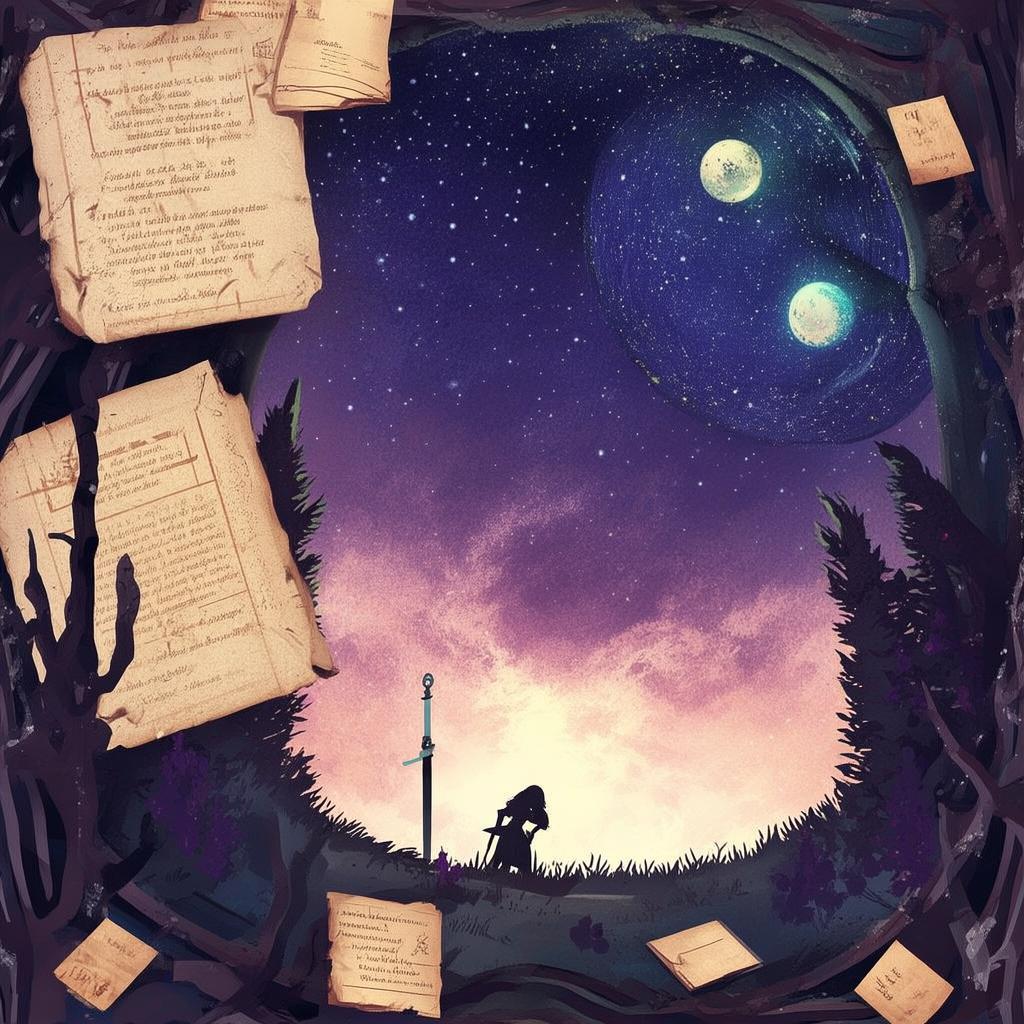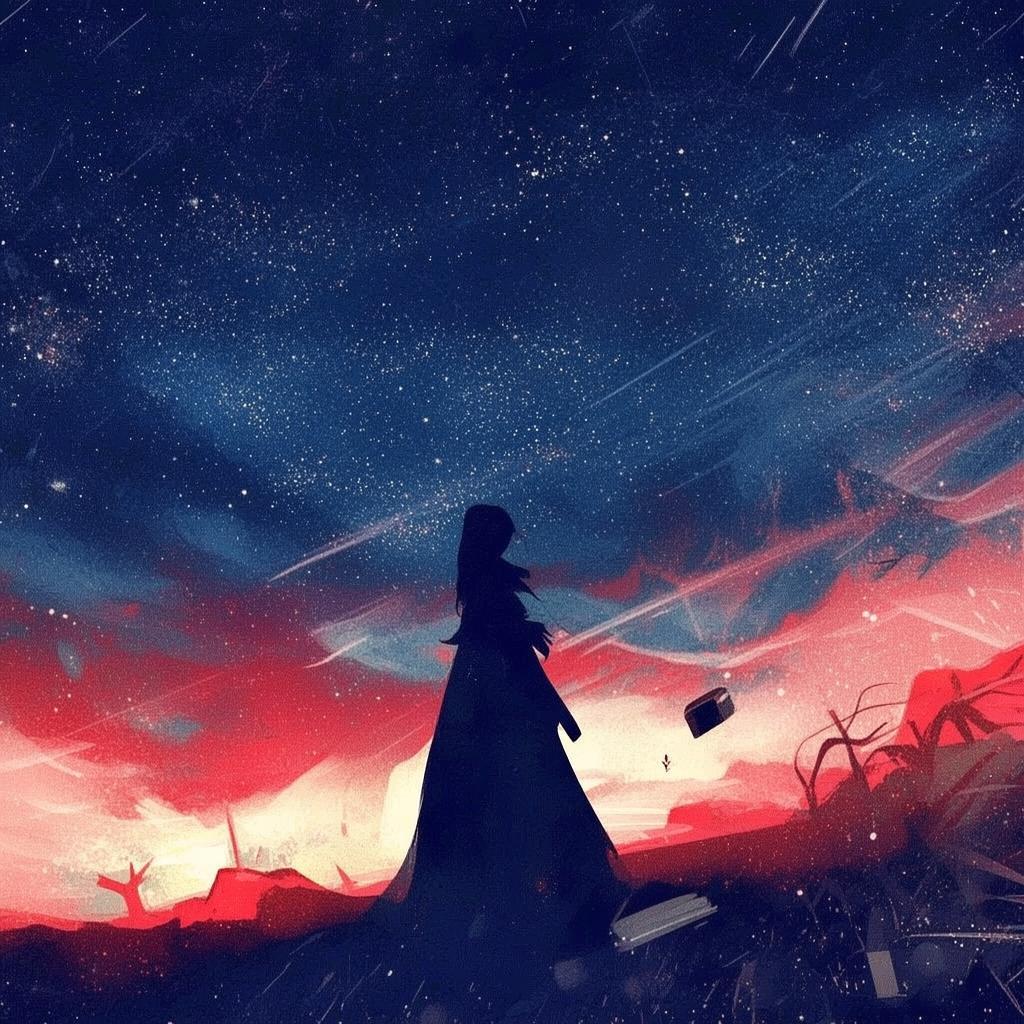The Monk's Final Reckoning
In the heart of the ancient temple, a monk named Genryu sat in meditation, his eyes closed, his breaths a rhythmic symphony. His hands, resting on his lap, formed intricate mudras, signifying his deep connection to the spiritual realm. Yet, even in the tranquility of his temple, Genryu's mind was fraught with turmoil. His quest to avenge the death of his master, a revered Zen master named Daishi, had consumed him. The master's murder had left an indelible mark on Genryu, and he sought only one thing—justice.
The night before, Genryu had received a vision. It was a vision of his master's final moments, a vision that he could not shake. The master, his eyes filled with fear, had seen his own death in a vision. Genryu knew then that he had to go back in time, to the very moment of the master's murder, to prevent it from happening. With the help of a mysterious artifact known as the Jigokuraku Paradox, Genryu embarked on a journey that would forever alter the course of his life.
The Jigokuraku Paradox was said to be a powerful time-traveling device, but it came with a price. Each use of the device would require Genryu to face a personal hell, a representation of his deepest fears and regrets. Genryu knew he must confront his past to save his master's life, no matter the cost.
As Genryu stepped through the Paradox, he found himself in the bustling streets of Kyoto, the year 1194. He was young, brash, and full of anger. The vision of his master's murder played over and over in his mind, guiding him to the temple where the master had been killed. But as he reached the temple, Genryu realized something was wrong. The master was alive and well, meditating in the very room where his vision had shown him being murdered.
Panic set in as Genryu tried to make sense of the situation. The vision had been clear, yet here was his master, alive and unharmed. Desperation drove Genryu to reach for the Jigokuraku Paradox, but as he did, the Paradox's light flickered and dimmed. He had used up his allotted uses.

Genryu returned to the present, but the vision remained with him. He realized that his own actions had altered the past, and now his master was safe. But at what cost? Genryu's mind raced with guilt and regret. He had prevented the master's death, but at the expense of his own redemption.
Days turned into weeks, and Genryu's life took a turn for the worse. He became a recluse, his mind consumed by the paradox of his actions. The more he meditated, the more he understood the true nature of the Jigokuraku Paradox. It was not just a time-traveling device; it was a mirror to the soul, revealing the truth of one's innermost fears and desires.
One night, as Genryu lay in his cell, he received another vision. This time, the master was calling out to him, his voice filled with sorrow. The master had realized that Genryu's actions had saved him, but at the cost of Genryu's own peace. The master had come to terms with his own mortality and sought Genryu's forgiveness.
Genryu, unable to bear the weight of his actions, decided to confront the master once more. This time, he would not use the Jigokuraku Paradox. He would go back to the past, not as a monk seeking to avenge his master's death, but as a student seeking to learn and grow.
Returning to the year 1194, Genryu found the master in the temple, meditating in the same spot as before. This time, Genryu approached the master with humility and respect. He asked the master to teach him, to guide him on his path to enlightenment. The master agreed, and for the next few years, Genryu dedicated himself to learning from the master.
As time passed, Genryu's mind began to clear. He realized that the master's death was not the end of the world, nor was it the beginning of his own suffering. It was simply an event in the grand tapestry of his life. The master had taught Genryu the true meaning of forgiveness and the importance of letting go.
One day, as Genryu was meditating, he received a vision once more. This time, the master was not in danger, but he was aging, and his time was growing short. Genryu knew that he must continue his path, even after the master's death. The master had given him the gift of understanding, and it was now his turn to pass that understanding on to others.
Genryu returned to the present, his mind at peace. He realized that the Jigokuraku Paradox had not been a device to alter the past, but a tool to reveal the truth of his own heart. Through his journey, he had learned that the past could not be changed, but the future could be shaped by the choices one made in the present.
As Genryu continued his teachings, he shared his story with his students. He spoke of the Jigokuraku Paradox, not as a device for time travel, but as a symbol of the inner journey. It was a journey of self-discovery, of facing one's fears, and of finding peace within.
And so, the Monk's Final Reckoning became a legend, a tale of redemption and self-discovery. It was a story that spoke to the hearts of all who heard it, a reminder that the true power lies not in the ability to alter the past, but in the courage to embrace the present and shape the future.
✨ Original Statement ✨
All articles published on this website (including but not limited to text, images, videos, and other content) are original or authorized for reposting and are protected by relevant laws. Without the explicit written permission of this website, no individual or organization may copy, modify, repost, or use the content for commercial purposes.
If you need to quote or cooperate, please contact this site for authorization. We reserve the right to pursue legal responsibility for any unauthorized use.
Hereby declared.









